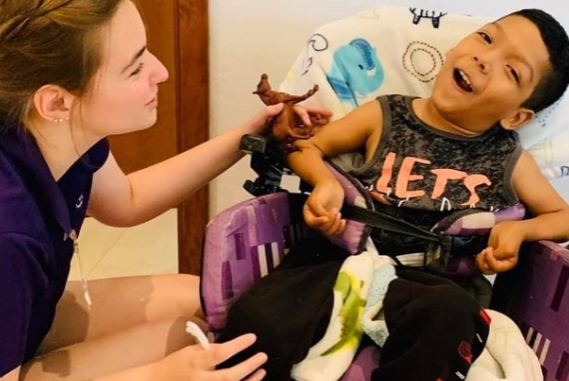
Truman State University is home to seven individual graduate degree programs. While all of these programs are highly esteemed, the communication disorders department has found consistent success in preparing students for post-graduate employment. Not only do CMDS students have a 100% employment rate upon completion of the program, but the department also has a three year average of 98% of students employed in the profession as speech-language pathologists.
Much of this success is accredited to the small class sizes, retention of instructors and the on-site clinic where students get the opportunity to help clients from the community. All of these factors prepare students to take their necessary examinations prior to employment.
According to Truman’s graduate studies communication disorders website, Truman CMDS graduate students are required to take the national Praxis exam, which covers speech-language pathology. For the past three consecutive academic years, Truman students have had a 100% pass rate. These students are not only distinguished by their exam scores, but also by their ability to combine classroom studies with hands-on clinical studies.
Located on the ground floor in the Health Sciences Building, the communication disorders department services a year-round Speech and Hearing Clinic. The clinic meets the needs of members from the university and community. Their services are not limited to who can pay, as it is fully supported by Truman State. This allows the clinic to serve more than 1,000 people a year. Services are offered for children and adults who have speech or language problems, difficulty with voice or fluency, and hearing loss.
Melissa Passe, director of clinical education at the Speech and Hearing Clinic, explained that the low turnover rate in CMDS staff and the close-knit environment of the clinic sets this graduate program apart from others in the state.
“Everyone who teaches in our program supervises in our clinic,” Passe said. “When you get that kind of team together, it tends to make us more like a family. At most other universities there is usually an academic and clinical split.”
The clinic does not rely on any revenue to pay its staff, because Truman’s academic staff is its clinical staff. This allows students to apply their knowledge from the classroom in focused situations with real-life clients.
Along with the hands-on clinic, students working towards a graduate degree through the master’s program will complete an internship program that allows them to explore the profession through further on-site work. Students spend time working at both medical and childcare institutions.
The 16-week graduate internship program prepares students with clinical experience and connects them to future employers. Passe reaches out to each institution where her graduate students complete their internship, thanking them and asking for feedback.
“Employers tell us that they really appreciate the preparation our program has given our students and love to extend job offers to the students when they are needed,” Passe said.
Amy Teten, communication disorders department chair and assistant professor of communication disorders, said the evaluation piece to the graduate program, known as a clinical process commentary, also sets Truman’s program apart from the other nine CMDS graduate programs in Missouri. Through this process, students present a case study after helping with a real-life client in their first semester and return to a four-professor council their last semester, which evaluates previous goals they set.
“Rather than a big comprehensive essay exam, this process goes throughout a student’s whole graduate program,” Teten said. “It helps us remember that none of us are ever done. We’re all still growing.”
Julia Edgar, Graduate Council chair for the past five years and associate professor of communication disorders, said she works closely with the heads of other graduate programs to strengthen and maintain the health of all graduate programs at Truman. She said she thinks the graduate school experience at Truman is special.
“The level of advising that’s given and interaction with the students and supervision during their internship shows that there is a higher caliber of faculty at our University,” Edgar said.
Passe explained that upon completion of the two year program, students are exposed to clients of all ages at both medical and school locations. This multifaceted experience embodies the liberal arts curriculum that Truman State prides itself on.
“We want to make sure our students meet the knowledge and skills for our entire scope of practice,” Passe said.
